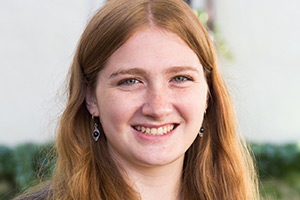Who does Vittorio Angelone think he is?
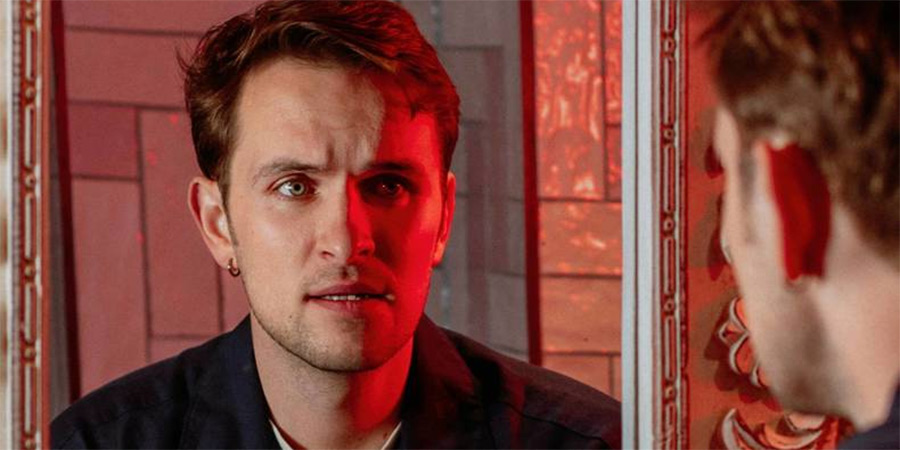
Vittorio Angelone's newest show, Who Do You Think You Are? I Am!, has been touring the UK, Ireland and Europe, including performances at the Edinburgh Festival Fringe in both 2023 and 2024. Recently, we had the opportunity to chat with Angelone about the continuation of his tour, which concludes next month. We discussed how he first got into the world of comedy, what it has been like to develop Who Do You Think You Are? I Am! and his views on social media and the role it plays in the industry.
So starting with just a bit of a general question, how did you first get started in the world of comedy?
I used to be a classical musician; classic transition into stand-up comedy!
I moved to London when I was eighteen to study to be a classical percussionist and, halfway through, I realised I was going to a lot of comedy gigs and wasn't going to very many orchestral concerts. So I thought, "If I want to perform, and I want to be on stage, then I should perform the thing that I would want to go and see." So I try to live by that kind of maxim. And, luckily, I went to the Guildhall School of Music and Drama, which, while being one of the best music colleges in the world, is very open-minded, and they let me kind of work on physical theatre and acting stuff - tailored all sorts of different lessons so I could broaden my horizons a bit.
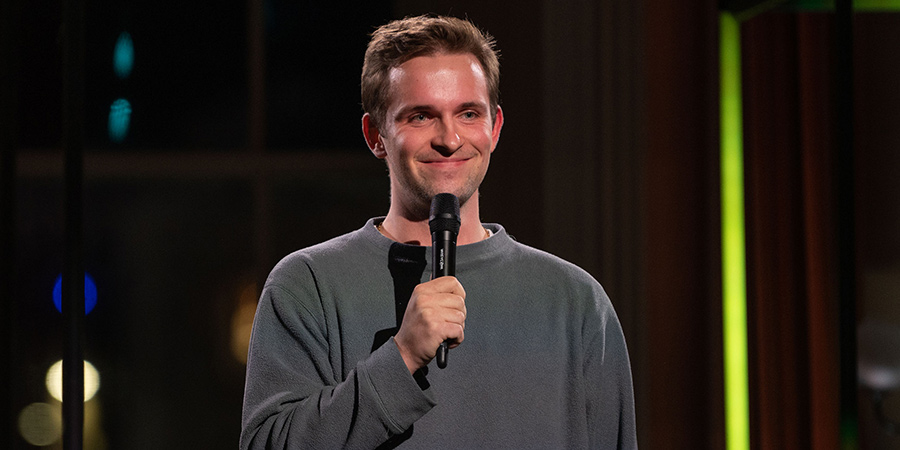
I did some acting and then started doing stand-up comedy two-thirds of the way through my degree. Normally, when people graduate from music college, you do a little bit of teaching during the day, and then in the evening you would go and do orchestral gigs or different music gigs, but I basically just swapped out the music gigs for unpaid, terrible open mic nights. It's gone bizarrely well since then!
Can you tell us a bit about your current show that you're touring?
My current show is called, Who Do You Think You Are? I Am!. It's largely about identity. Other themes come up, as one would hope, but it's largely about where people get their identity from and where I get my identity from - whether it comes from an internal place or from how other people perceive you.
I did it at the Fringe 2023, that's the first time I did it, with work-in-progress shows leading up to that. Then I toured it January to May around the UK and Ireland, did a little European tour in May, and then did it a few times at the Fringe 2024, a few one-offs - four nights at the Fringe I did in different venues. Did that, and then extended the tour September through to December. So that's where I'm at now, the final UK and Ireland leg of the tour, and we just hit 100 shows, which seems completely mad!
The show has changed a lot and developed. It got a little bit bloated in the middle of the tour - it was 85 minutes long, which when it works is great, but when it doesn't work, is long! So it's back down to a much more reasonable 65 these days, which is a bit more fun.
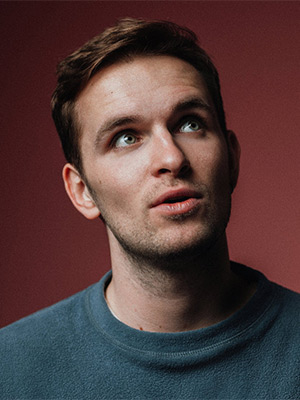
And what inspired you to create this show about your identity?
A couple of things! It's something I struggle with a little bit, but probably more so I'm interested by it. My first show is about what it is to be Irish in the context of English people, living in England as an Irish person and my experience of that. I saw a lot of comedians doing shows about their sexuality, their race, their gender identity and their socio-economic classes. They're brilliant shows, they're brilliant comedians, and I thought, "There's more to these people than just the groups that they're part of."
I'm aware that there's a lot of grifters and right-wing online people who rail against group identities and the "woke mind virus, blah, blah, blah." And that was quite a balancing act, because I'm always conscious of not doing that, not playing to a crowd who are laughing for the wrong reason. I think it's good to say mad things, but you have to understand where the laugh is coming from. If they're laughing because what you said is mad, that's good, but if they're laughing because they agree with the mad thing you said, that's bad.
So it's trying to figure out a way to do a show that is gently against the group identity in a more positive way - I think there's more to us than that! I think there's more individuality. People are very interesting and very different to each other, even within those groups. I also found that I didn't slot into any of the groups that you might have put me in. And, throughout the show, I talk about how I felt like I found my place and my identity in the group of being a comedian, and then I talk about how that went a bit wrong and slightly blew up in my face - when I finally felt like I found the place that I belonged, and then it doesn't feel like that anymore.
It's all this stuff about the dangers of placing your self-esteem in the hands of other people. It's a very hard thing to keep it all here, especially as a comedian - you're reliant on the views of other people. But I wanted to talk about my efforts to try and find it internally.
What was your creative process like for Who Do You Think You Are? I Am!?
Generally, my process for the two shows has been the same. I try not to have an idea of what the show is going to be. I'm just always making notes on my phone like, "Oh, maybe that's funny!" Talk about it on stage, let lines come to me on stage, try to give myself space to think and figure stuff out. And then at a certain point before the first work in progress of the show, I write down all the bits that I've got that I think are good on flashcards, I put them all on my living room floor and I go, "What's going on?". All of these bits came from my brain - they must be connected somehow. There's something that I am preoccupied with and have been preoccupied with for the last year or whatever amount of time. And you go, "Oh, that seems like it's talking about that! And oh, that's talking about that as well!" And then you can build this journey together. I knew vaguely I wanted to do a show about identity. I was already aware that lots of my bits were about that.
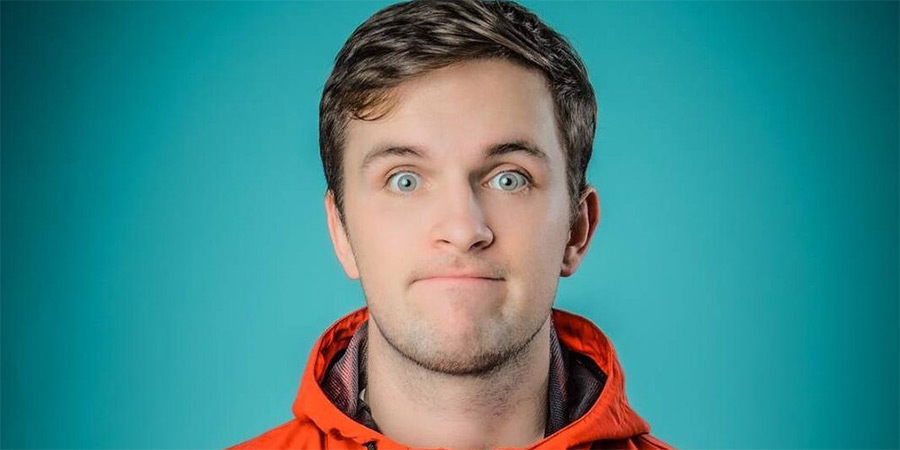
When I started doing the show, because I had this obsession about how other people perceived me, I would hand around a notebook before the show started and ask people to describe me in three words in the notebook. So I had fifty people's view of me, and there was a moment in the show where I would read through it live on stage. That didn't make it into the tour show, but it was a very exciting process of finding out what people think of you - finding out that lots of people think you're short, which might be a function of being a social media comedian! Most of the time people see you, you're whatever height their iPhone is. Proportionally, I look smaller than I am. I have very short arms, I have very short legs, I'm built like a Shetland pony! But I found that quite exciting, handing the notebook around. It didn't quite work as a stage thing, but it was an important part of the process.
Part of it was, I was told once, to make it as a mainstream comedian, you have to be identifiable by three words. So the example would be like, "Blonde, teeth, Essex." That's Rob Beckett. "Bald, camp, suit." That's Tom Allen. All these big TV names. "Attractive, Canadian, woman." Katherine Ryan. And I've never done TV, so I was like, "What is it that makes some people click on TV and makes other people not click on TV?" I think it is this idea of having a very identifiable shtick - this is who they are, and this is what they do. I'm very averse to that. I don't want people to know what I'm going to do or what my viewpoint is going to be on things. I like to take everything as a case-by-case basis. It might be a detriment to my TV career, but I would prefer that artistically.
And so what is it like to be bringing the show to the Clapham Grand for your 12th show in London?
Oh my God, London just keeps buying tickets, which is a good problem to have! I probably underestimated my London audience. You just don't know. I don't think anybody ever knows, even the TV people.
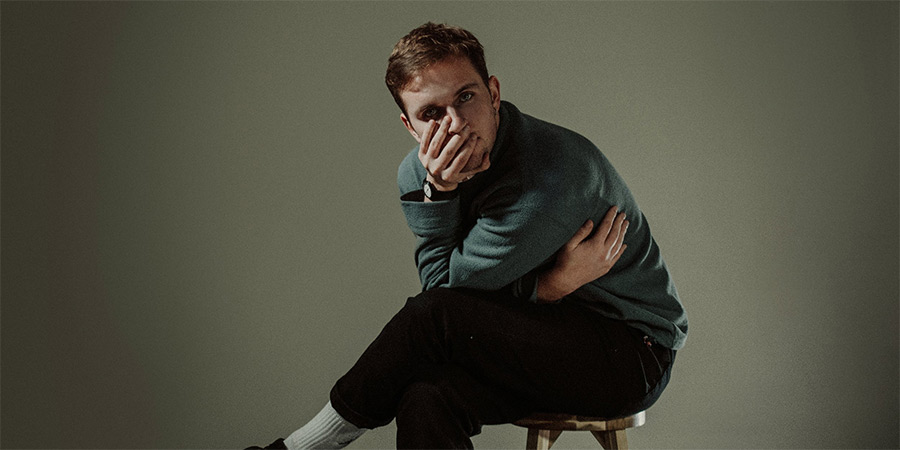
You had a rough idea back in the day, but with social media, you go, "Okay, I think I have some audience here," and then you take a punt and you go, "Oh God, Southampton was probably a mistake!" But London, I've lived there for ten years and that's informed my point of view and my vibe. Twelve shows... Last tour, I was thrilled to do two - The Comedy Store and Leicester Square Theatre. This is crazy! And we did Leicester Square Theatre eight times. We did another theatre, we did Union Chapel and we're doing Clapham Grand. It's beggars belief, really, and it's very exciting, and I try not to question it.
I spoke to Dara O Briain briefly at the Fringe and I was like, "I don't really know why any of this stuck! There's loads of comedians putting out clips on the internet. I don't know why what I'm doing is working and why other people aren't selling tickets in the same way," and Dara was just like, "No, you mustn't question that!" [Laughs] "You just sell the tickets while you can sell the tickets and you do your best to put on a good show for the people that have kindly bought them."
On the topic of social media, what is it like using these different formats for comedy like podcasts, sketches and social media clips?
It's very fun. I think it's great. Some people rail against it, lots of old comedians. And I always find it very funny, because I've been on tour for eleven months now, but when I'm not on tour, I'm still doing club gigs. I can still do twenty minutes at The Glee or whatever. I think that's a good thing to do a lot of the time.
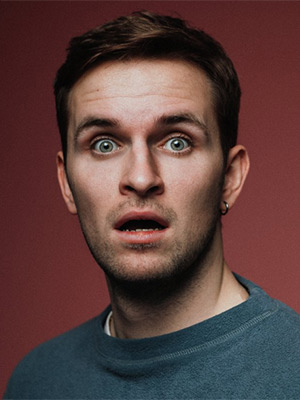
Sometimes it's completely useless - you're just performing to stag and hen dos and they're not there for the art of it, I don't think! But I pride myself on being a comedian that can do well in a comedy club environment to people who have no idea who I am. And I would often have this experience if I would go on, do my try-out spot at The Glee or whatever when I was coming up, and these older comedians would go, "Ah, it's great to see a young comedian doing some proper comedy! All these other comedians are just obsessed with social media and clips!" And I was like, "Hey! Google me, because you won't be pleased!" [Laughs]
I try to make stand-up the focus of the online stuff. That's probably a help, in terms of that's what you're trying to sell - stand-up. It is creatively limiting, but everything's creatively limiting!
Writing a sitcom is creatively limiting - it has to be 22 minutes long. Doing a painting is creatively limiting - the painting is only so big! Everything is creatively limiting, and that's where art exists. It exists within the creative limitations that you are presented with. So I think people who complain about social media being the route to success nowadays are being lazy and unartful.
The art of the thing is when you're provided with a medium, and that's what social media is - it's just a medium. It's your job to be creative in a way that is engaging and interesting to people.
You don't have to do crowdwork clips. People seem to think you have to do crowdwork clips. Milo McCabe says hello to people outside shops [as the character Troy Hawke] and he's famous now. That's crazy, but it's great! Those videos are brilliant. They make you feel so good, and he's so funny and good at them.
There's no right way, there's no wrong way. It's a new medium, and I'd rather this than have to have a sitcom ready to go, or have to have a clean ten-minute set for whatever TV show you might be on. This feels like the least creatively limiting medium that comedy has ever been provided with in terms of building an audience. So I think it's all very exciting, but of course I would say that - it's going well!
What do you hope audiences take away from Who Do You Think You Are? I Am!?
Merch! [Laughs]
I want them to feel good. I want them to feel like they've seen a show, not just a series of bits. I want them to feel like I've taken them from A to B to C and it's gone through something, and I, as the performer, have gone through something and changed. I hope I'm changed throughout the performance and, by extension, I hope the audience has changed. I don't think comedians can change people's minds, but I think you can be like the first domino that opens up a little door in their brain, where they can just see things in a slightly different way. I talk about controversial topics on stage - I think it's important to talk about controversial topics.
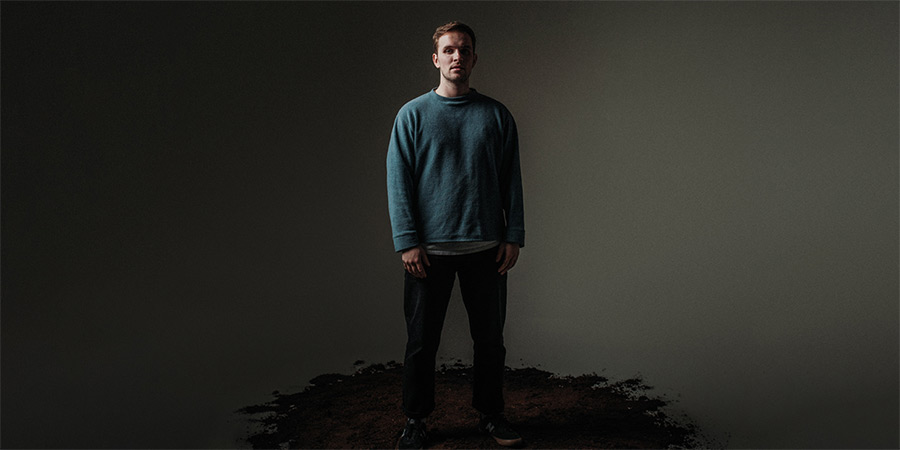
I don't think I'm going to solve the controversial topics. I just let people think about them without being scared of them. And then if they can go away and have that new bit of their brain that they're allowed to exist in without being scared, that's great. If I talk about trans people and trans rights in my show, I do it in a funny, silly way. I am the person who doesn't want to get it wrong and gets it wrong and fucks it all up - I'm trying to be progressive and I'm just fucking it all up. And I think that's nice, because then they go, "Okay, it's okay to fuck this stuff up. It's okay to get it wrong." Now, maybe, they at least feel comfortable thinking about those broader ideas. That's a hope. And then just have a good time! Few pints, night out. It's all good.
And finally, how would you describe the show in one word?
I feel like people describe shows by how they feel at the end of them because that's when people would be asked that question. So by the end of the show, I would say "triumphant."
Who Do You Think You Are? I Am! continues to tour until 14th December. vittorioangelone.com
Help us publish more great content by becoming a BCG Supporter. You'll be backing our mission to champion, celebrate and promote British comedy in all its forms: past, present and future.
We understand times are tough, but if you believe in the power of laughter we'd be honoured to have you join us. Advertising doesn't cover our costs, so every single donation matters and is put to good use. Thank you.
Love comedy? Find out more
